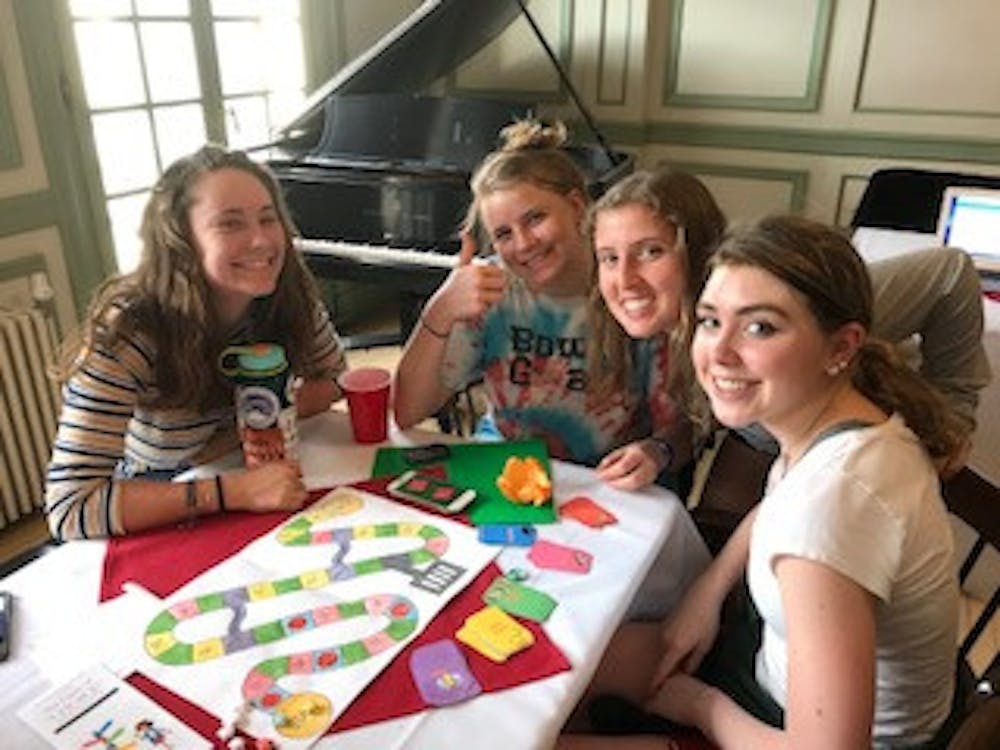The Gender Sexuality and Feminist Studies Department (GSFS) hosted the first ever themed game night last Friday in the Chateau Grand Salon. Students and faculty came together to explore feminist and queer theory through games designed and created by students in two GSFS classes.
Professor Carly Thomsen taught both classes, Politics of Reproduction and Introduction to Queer Critique. The intention of the students’ projects was to translate academic texts into an accessible form. The gathering filled the Grand Salon to capacity.
“I was really surprised to see how many students showed up” said Professor J. Finley of the American Studies department.
Although some professors who attended merely observed while students played, Finley played a Jenga game inspired by Foucault.
“I was really impressed by the absorption of really complex theoretical material and the ability of the people who made that game to make it into something that was engaging in an interesting and fun way.”
Spanish professor Roheno-Madrazo also played Foucault Jenga.
“I played Foucault’s Discourse Jenga, about how our societal discourses about sexual repression and oppression keep repeating in a self-perpetuating loop until they topple and get rebuilt...sometimes in very similar ways,” he said.
This game night started out as an assignment but ultimately manifested itself into a game night open to all. The intention of the students’ projects was to translate academic texts into an accessible form.
“What Carly [Thomsen] does is she really finds a way to bring the learning out of the classroom. The work she does to draw people into feminist work is great,” Finley said.
Finley and Thomsen are teaching a class called Beyond Intersectionality next spring, which will host a series of workshops and a symposium.
Thomsen stresses the importance of translation in her courses. The students’ desire to actualize their knowledge of what was going on in the world was the impetus for thinking about developing games as a class project.
“In a lot of Gender, Sexuality and Feminist Studies classes we read a lot of theoretical work or work that surprises students and sometimes angers students. And at the end of classes I used to always be asked, what do we do with this information?” Thomsen said.
The students’ desire to actualize their knowledge of what was going on in the world pushed Thomsen to make developing games a class project. Without the tools or the knowledge to change any of the problems that students were discovering through their studies, an opportunity to expand the feminist and queer studies syllabi arose.
But Thomsen has long used translation based assignments in her courses.
“In all my classes, instead of writing just a final paper, students do what I call a translation assignment and so they take one text, one academic text, and think about how they would turn it into an alternative format for an alternative audience, one beyond our classroom. The point of this is two-fold. In order to talk about a text in the world you have to know it in a far deeper and more complicated way than you do if the other people with whom you are talking have also engaged with that text,” Thomsen said.
“I think in this political climate it is especially important to be able to talk with people who we might not agree with,” she said.




